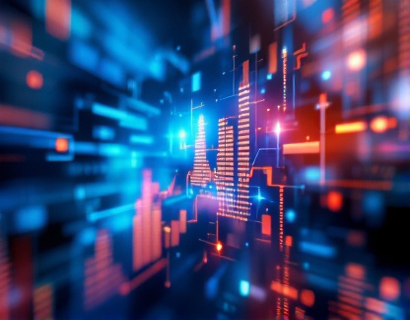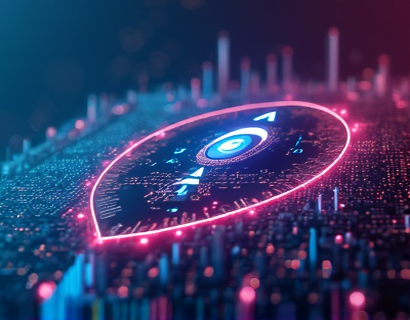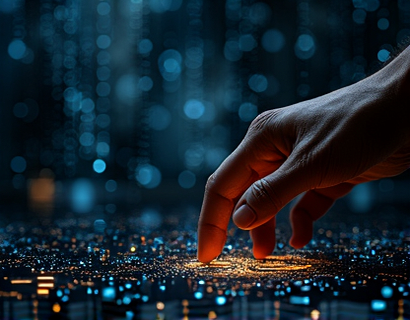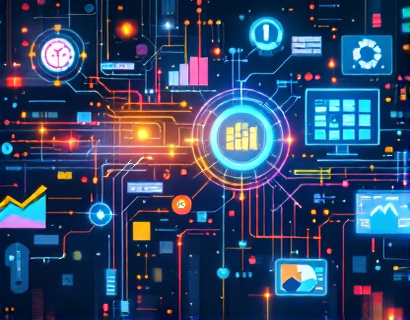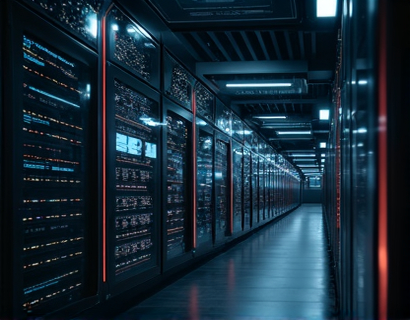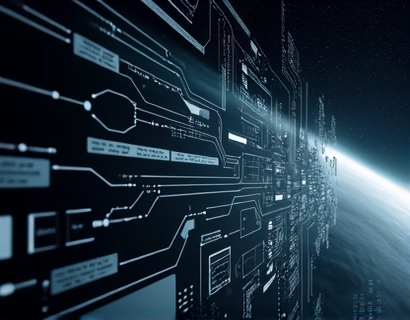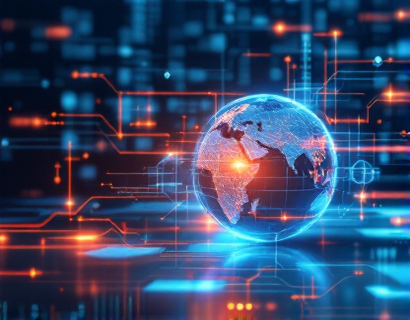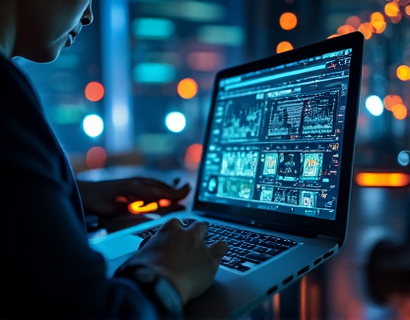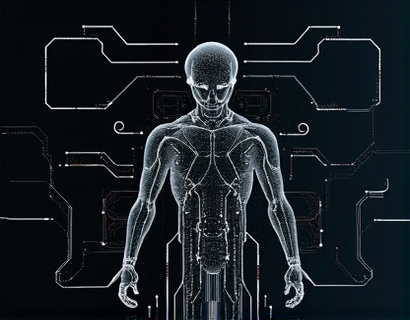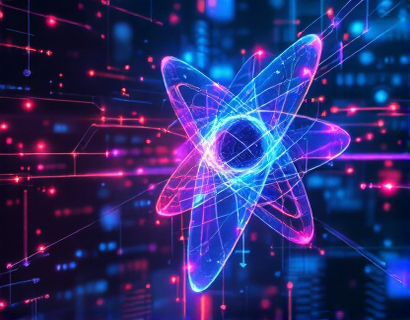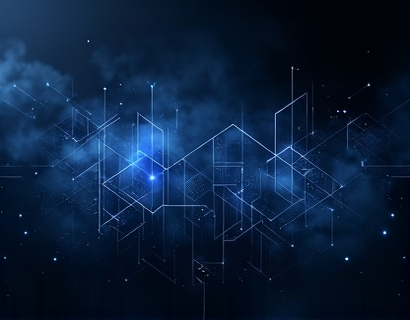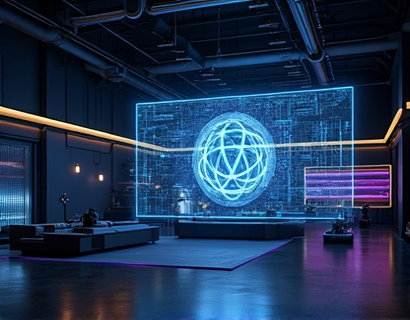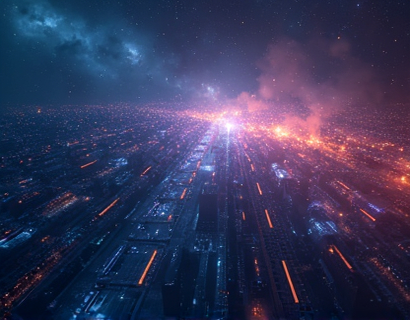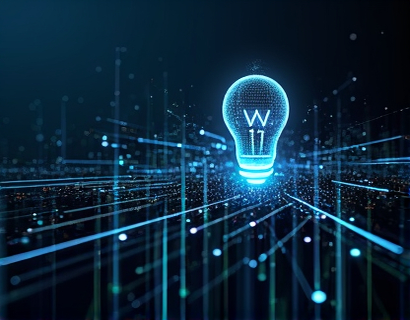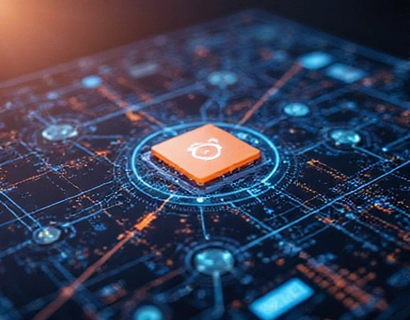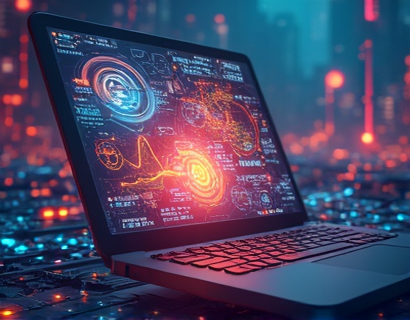Decentralized AI and Crypto: Transforming Ucosystem Applications for Enhanced Productivity and Innovation
The integration of decentralized technologies with artificial intelligence (AI) is ushering in a new era of digital innovation. This convergence is redefining how we approach productivity and task management, offering unprecedented opportunities for efficiency and creativity. By leveraging the strengths of both decentralized systems and AI, developers are creating applications that not only simplify daily tasks but also enhance overall productivity in ways previously unimaginable.
Decentralized applications, or dApps, operate on blockchain networks, eliminating the need for central authorities and intermediaries. This decentralization brings numerous benefits, including increased security, transparency, and user control. When combined with AI, these applications gain the ability to learn from data, adapt to new inputs, and perform tasks that traditionally required human intervention. The result is a powerful synergy that is transforming various sectors, from finance and healthcare to education and beyond.
Enhancing Productivity with Decentralized AI Solutions
One of the most significant impacts of decentralized AI is in the realm of productivity tools. Traditional productivity software often relies on centralized servers, which can be vulnerable to outages, data breaches, and censorship. Decentralized AI-powered tools, however, distribute data and processing across a network of nodes, ensuring higher reliability and security. For instance, a decentralized task management application can use AI to prioritize tasks based on user behavior and deadlines, all while maintaining data privacy and integrity.
AI algorithms can analyze vast amounts of data to identify patterns and insights that humans might miss. In a decentralized environment, this capability is amplified as data is not confined to a single entity. For example, a decentralized project management platform can leverage AI to optimize resource allocation by analyzing the skills and availability of team members across the network. This not only streamlines project execution but also fosters a more collaborative and efficient work environment.
Simplifying Daily Tasks through AI-Driven Automation
Daily tasks can be time-consuming and repetitive, but decentralized AI applications can automate many of these processes. Smart contracts, a key feature of blockchain technology, can be programmed to execute specific actions when certain conditions are met. When combined with AI, these contracts can become even more intelligent, adapting to changing circumstances and optimizing outcomes. For instance, a smart contract can automatically adjust payment terms based on performance metrics, ensuring fair compensation for all parties involved.
Personal assistant applications are another area where decentralized AI shines. These apps can use AI to understand user preferences and habits, providing personalized recommendations and automating routine tasks. For example, an AI-powered personal assistant can manage calendar scheduling, send reminders, and even book travel arrangements, all while learning from user feedback to improve its suggestions over time. The decentralized nature of these apps ensures that user data remains private and secure, building trust and encouraging wider adoption.
Innovations in Financial Services
The financial sector is one of the most transformative areas impacted by decentralized AI. Traditional financial systems are often slow, expensive, and opaque, but blockchain and AI are changing this landscape. Decentralized finance (DeFi) platforms use AI to offer a range of financial services, from lending and borrowing to trading and wealth management, all with enhanced efficiency and accessibility.
AI-driven algorithms can analyze market data in real-time, identifying trends and making informed investment decisions. These algorithms can operate on decentralized exchanges, reducing the risk of manipulation and increasing liquidity. For instance, a decentralized trading platform can use AI to execute trades at optimal times, maximizing returns for users while minimizing risks. Additionally, AI can help detect and prevent fraudulent activities by analyzing transaction patterns and identifying anomalies.
Credit scoring is another area where decentralized AI can make a significant impact. Traditional credit scoring models rely on centralized data sources, which can be incomplete or biased. Decentralized AI systems can aggregate data from various decentralized sources, providing a more comprehensive and accurate assessment of creditworthiness. This not only helps financial institutions make better lending decisions but also provides more opportunities for individuals who may have been excluded from traditional credit systems.
Transforming Healthcare with Decentralized AI
Healthcare is another sector that stands to benefit greatly from the combination of decentralized technologies and AI. Patient data is sensitive and critical, and decentralized systems can ensure that this data is stored securely and accessed only by authorized parties. AI algorithms can analyze medical data to identify patterns, predict disease outbreaks, and personalize treatment plans.
A decentralized health record system can give patients full control over their medical data, allowing them to share information with healthcare providers as needed. AI can process this data to provide insights into patient health, suggesting preventive measures and early interventions. For example, an AI-powered diagnostic tool can analyze medical images and patient histories to assist doctors in making more accurate diagnoses. The decentralized nature of these systems ensures that data is not centralized in one vulnerable point, reducing the risk of breaches and enhancing patient privacy.
Education and Learning Enhanced by Decentralized AI
The education sector is also experiencing a revolution thanks to decentralized AI. Traditional educational models often struggle with personalization, but AI can adapt learning experiences to individual student needs. Decentralized learning platforms can use AI to curate personalized learning paths, recommend resources, and even facilitate peer-to-peer learning.
AI-driven tutoring systems can provide real-time feedback and support, helping students grasp complex concepts more effectively. These systems can analyze student performance data to identify areas of weakness and adjust the learning material accordingly. The decentralized aspect ensures that educational resources are accessible to a global audience, breaking down barriers of cost and location. For instance, a decentralized online course platform can use AI to match students with tutors based on their learning styles and preferences, enhancing the overall educational experience.
Challenges and Considerations
While the potential of decentralized AI is vast, there are several challenges and considerations that must be addressed. One of the primary concerns is scalability. Blockchain networks, especially those using proof-of-work consensus mechanisms, can be slow and resource-intensive. However, the development of more efficient consensus algorithms and layer 2 solutions is addressing these issues, making decentralized applications more scalable and user-friendly.
Another challenge is the regulatory landscape. As decentralized technologies and AI become more prevalent, governments and regulatory bodies are beginning to take notice. Ensuring compliance with existing laws while advocating for supportive regulations is crucial for the growth of these technologies. Transparency and ethical considerations are also paramount, as the use of AI in decentralized systems must be guided by principles that protect user rights and prevent misuse.
Future Prospects
The future of decentralized AI and its applications is bright, with numerous possibilities on the horizon. As technology continues to advance, we can expect to see more sophisticated and user-friendly decentralized tools that further enhance productivity and innovation. The integration of AI with other emerging technologies, such as the Internet of Things (IoT) and quantum computing, will open up new avenues for decentralized applications.
For developers and innovators, the potential to create impactful decentralized AI solutions is immense. By focusing on user needs and leveraging the unique strengths of blockchain and AI, the next generation of applications will not only simplify tasks but also redefine how we interact with technology. The decentralized Ucosystem is poised to become a cornerstone of the digital future, driving productivity, creativity, and collaboration on a global scale.




